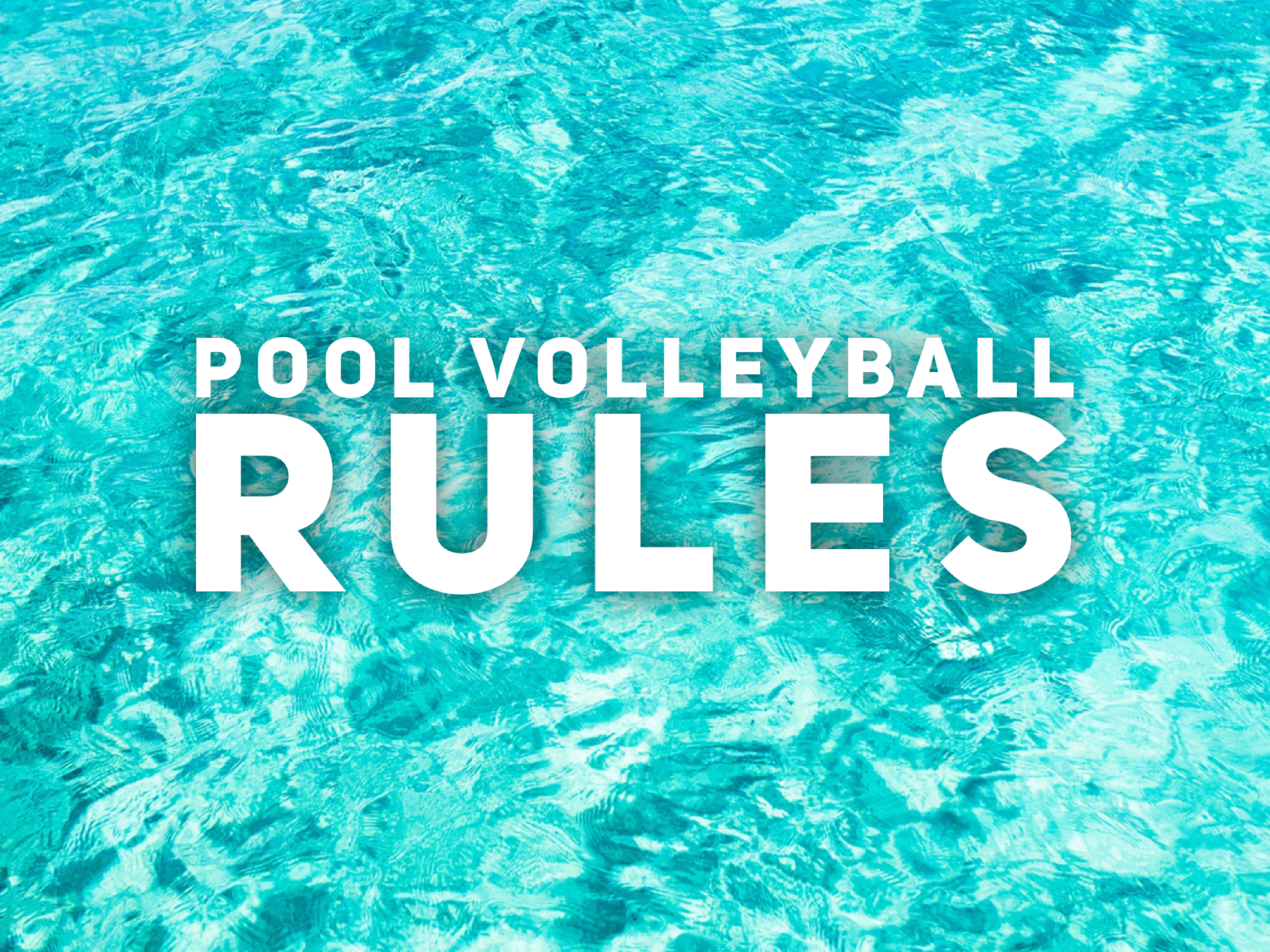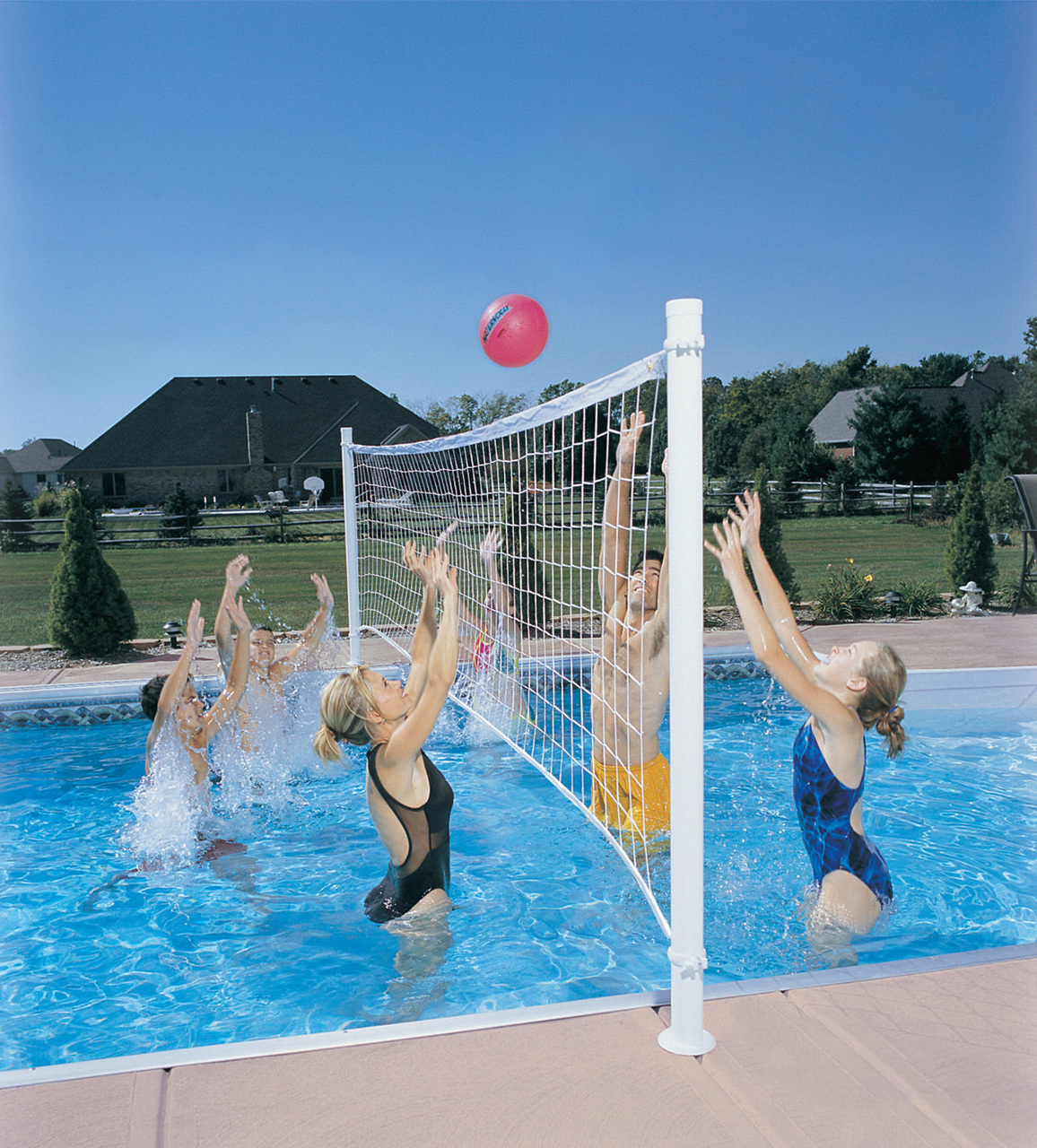Pool Volleyball Rules
Posted by Dunn Rite Products on May 2nd 2019
In pool volleyball, the first team to win two games wins the set. This exciting game is an exciting way to stay fit and trim in the summertime and during warmer temperatures. However, without knowing the rules, you're unlikely to have much success.
Who Goes First?
Before you jump in the pool, toss a coin to see which side should serve first. Be sure to have a sturdy net, such as Dunn Rite stainless-steel deck volleyball nets, that can withstand the impact of your power players. Scores are flexible, with games up to 11, 15, or 25 points being the most common. Teams should decide the length of the game before starting a set. Keep in mind that the winning team needs a two-point lead or the game goes into overtime. That's when things get really exciting!
Volleyball Serving
It's important for everyone on the team to know how the serve works. Once your team gets the serve, everyone rotates clock-wise so that the next team member in position can take over the serve. The player performing the serve should call out the serve before hitting the ball, which gives both teams an opportunity to focus on the play.
Dunn-Rite volleyballs are regulation size and easy to see, giving your team an opportunity to play like the pros.
Volleyball Scoring
Points are scored by both teams, regardless of who is serving. In fact, a new serve results each time a point is made. Here's how to make points and steal the victory from your opponents:
An opposing team member double-hits the ball The ball hits the water within the boundary lines on the opposing team's side of the net A player pushes, carries, or catches the ball (opposing team scores) The ball is hit at the same time by two players on the same team When a player touches the net while the ball is in play
Volleyball Service
Overhead serves are the typical style used in water volleyball. However, the rules allow for side or underhand hits as long as the ball stays above the water and the server doesn't violate the no-carry rule.
Volleyball Set Length
A match has points and sets. For competitive volleyball, if a team makes 25 points before the opponent that team wins the set. A match is three sets and the first team to win with sets wins the match. If a match requires a fifth set (both teams have won two sets) , the fifth set is played up to 15 points to determine which team wins the match.
In non-competitive volleyball played backyard swimming pools, matches can last and be determined by whatever the players can handle. Make sure that both teams agree on the length and scoring rules to avoid any conflict at the end of the match. If you regularly host tournaments, it's a good idea to get a volleyball set with weighted anchors for long-lasting durability for many summers to come
This is important because pools might or might not match in shape and/or water depth on each side of the net (you can always alternate so that the game is fairer to whoever winds up on the deeper end. Anchors keep the equipment in place.
What the Most Common Penalties in Competitive Pool?
A few common errors that can help you avoid any penalties are:
A single player touches the ball twice consecutively. A team touches the ball four (4) times consecutively. Any player touches the net during play. Any player catches or cradles the ball
Settling Disputes with a Referee
A volleyball match is watched over by a referee, who observes actions from a stand. You can just choose someone or alternate the position., Make sure they have a clear view of action above the net and looking down into the court. The second referee helps the first referee view different angles to call tough plays on the court.
Dunn-Rite Pool Products and Inflatable Paddle Boards
3rd Generation Family Owned Company with a long history of developing innovative products of the highest quality.
Inflatable Paddle Boards - Combo Units - Pool Volleyball - Pool Basketball




